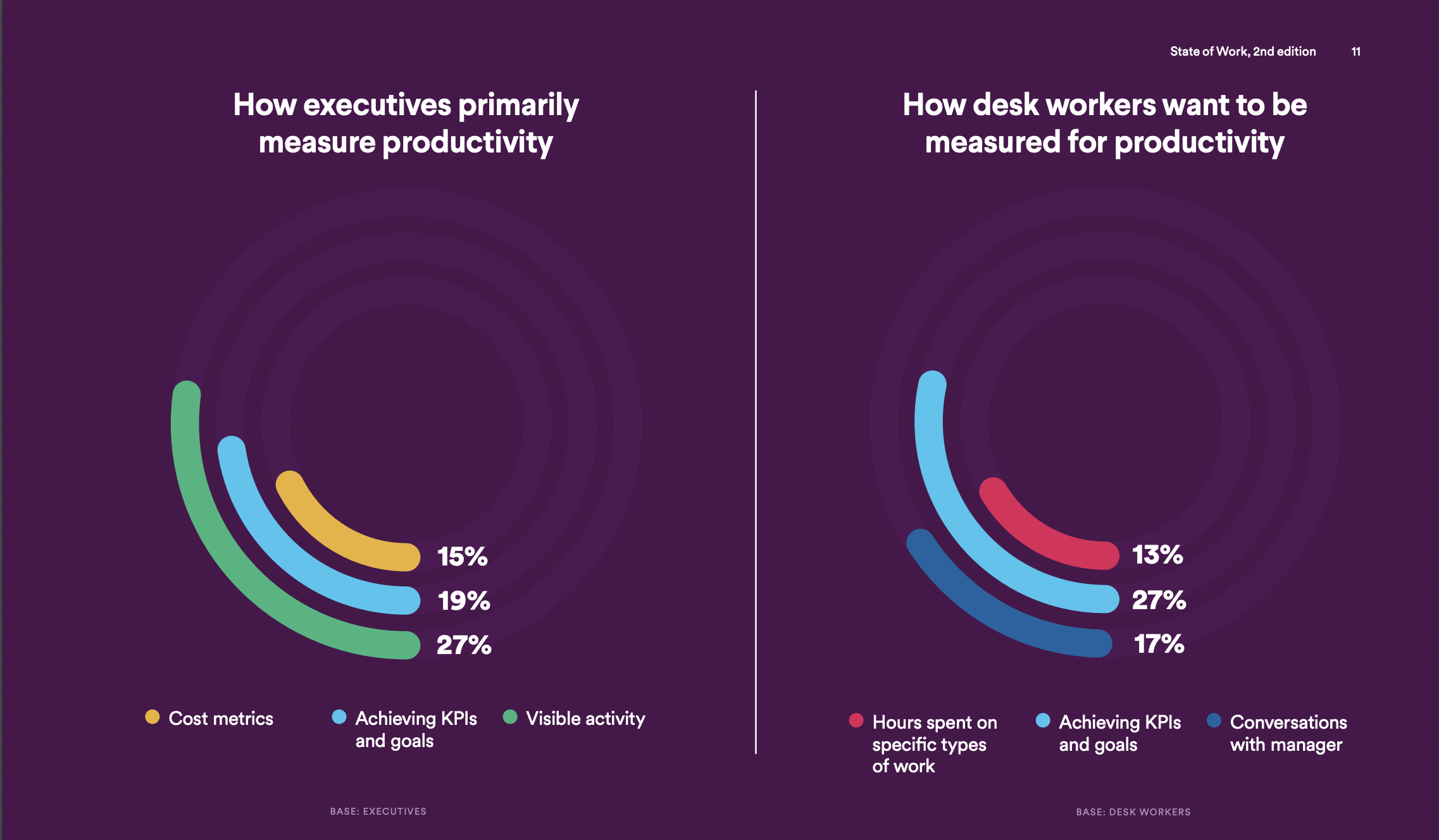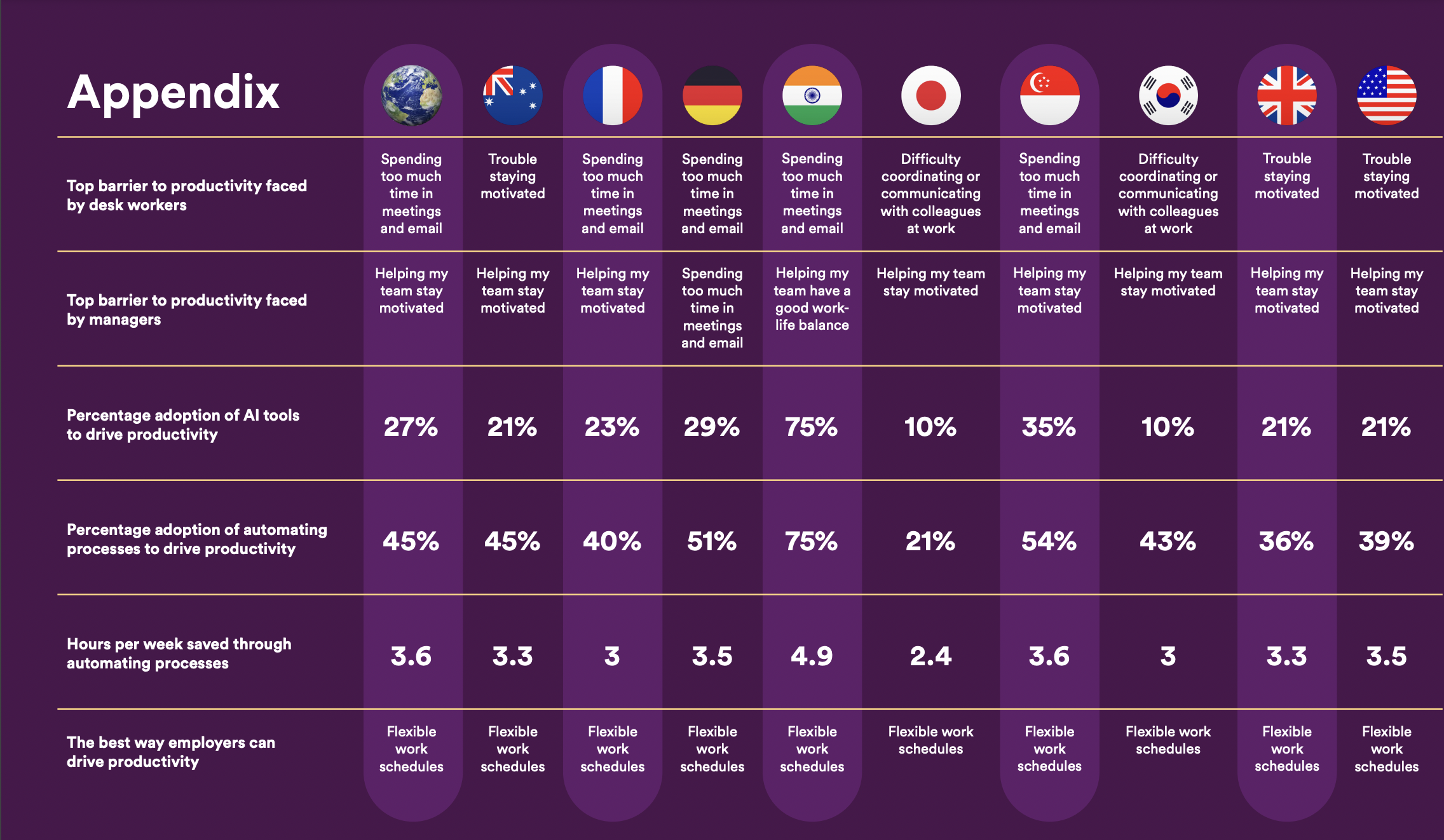Hard at work, or hardly working?
While most of us like to believe that we fall somewhere in the former, a global study involving more than 18,000 desk workers reveals that Singapore’s workforce may fall towards the latter.
The study, conducted by Salesforce subsidiary Slack and research firm Qualtrics, ranked Singapore third for “performative work”. The results point towards a hard-to-deny conclusion: Singaporeans may appear hard-working but do not produce results to match.
This problem is not just prevalent in Singapore. Asia has been found to engage in much more performative work than other regions worldwide.
Indian, Japanese and Singaporean Workers Found to Spend More Time on “Performative Work”
For reference, the percentages of time spent on such work are:
- India: 43%
- Japan: 37%
- Singapore: 36%
- France: 31%
- United Kingdom: 30%
- Australia: 29%
- Germany: 29%
- United States: 28%
- South Korea: 28%
According to the list, Singaporeans spend a worrying 36% of their time on performative work.
For the two countries ranking above Singapore, India and Japan (in first and second place respectively), workers in India were found to spend 43% of their time in the workplace on performative work. In contrast, workers in Japan spend 37% of their time on performative work.
In fact, both Singapore and Japan were found to have the second least amount of time spent on work that was productive, at 63% each.
So, what is performative work?
According to the hospitality recruitment platform Hcareers, performative work is when employees invest more time into activities such as attending meetings or sending emails to appear more productive. Despite the attempts to appear busy, these employees produce very little in terms of actual work.
The problem grew worse due to the COVID-19 pandemic as people working from home felt they had to be constantly connected to prove that they were at their computers. Answering a greater amount of emails and attending more Zoom calls were ways to prove employees were busy, but that leaves little time for workers to make actual contributions at work.
Singapore Bosses Tend to Evaluate Workers Based On What They See Instead of Actual Work Output
One reason for the rise in performative work and the drop in productivity may be due to a mismatch in expectations of both workers and their employees.
It turns out that most leaders in the workplace place more emphasis on visual observations of their employees working rather than focusing on the actual Key Performance Indexes (KPIs) that employees actually meet.

27% of the executives surveyed in the study said they measure productivity based on visual activity. Despite this, 27% of workers said they wish they were measured by hitting their KPIs and goals.
Long Hours Spent in Meetings and Answering Emails Costing Worker’s Productivity in SG
According to the study’s appendix, Singaporean workers feel that the sheer volume of meetings and emails they face at work is affecting their productivity.

In fact, 70% of the total respondents feel that their productivity would be greatly increased if there were fewer meetings and emails at work.
Advertisements
Currently, the best way local employers can spur productivity is to implement flexible hours while cutting down on the number of meetings.
I just hope my boss doesn’t find out I’m being less productive than usual. Back to sending emails now.
Read Also:
- You Can Soon See “Northern Lights” in Gardens by the Bay & It’s Free
- Everything About the Eta Aquarids Meteor Shower That’ll Be in S’pore Sky in May
- S’porean Killed in Spain Had Bought Insurance Policy from Suspect
- Everything About the 15YO Who Lived in a Circuit Road Market Stall
- Walk-Ins for Some Traffic-Related Service in TP Be Discontinued & People Have Book Appointments Instead
- Certain Parts of Telok Blangah Hill Park to be Closed for 2 Years After Slope Failure
Advertisements

